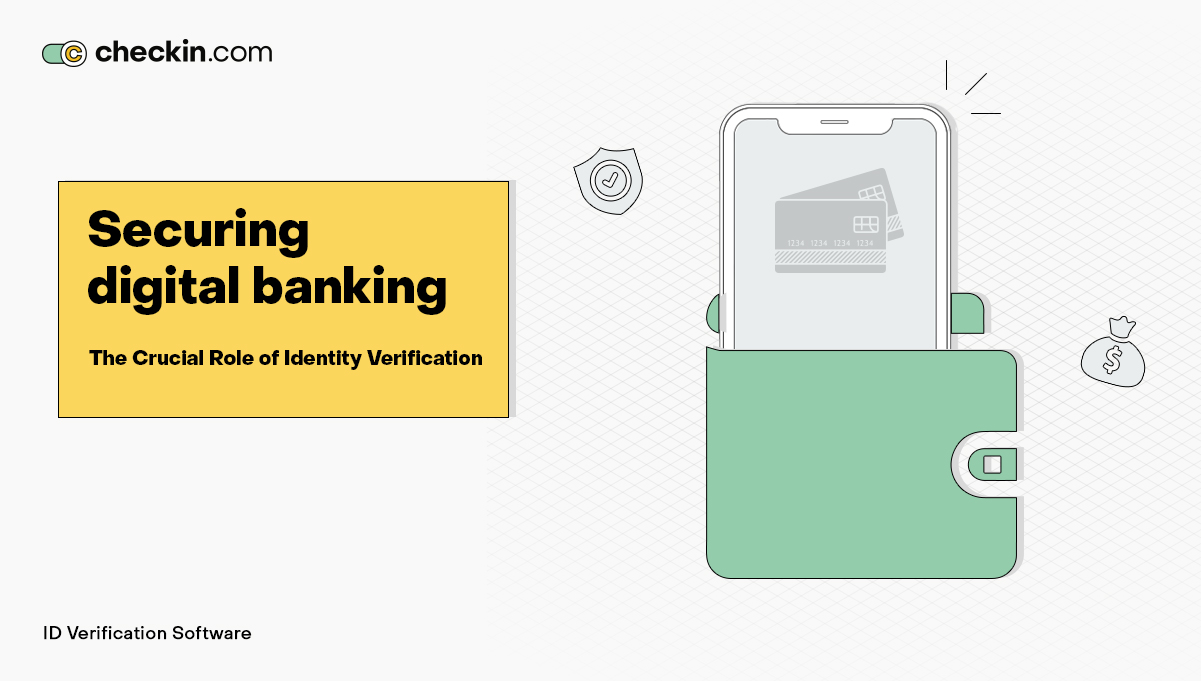
How Identity Verification Secures Online Banking
24 Feb 2023
The rise of digital banking has reshaped our approach to personal finance. However, this leap in banking technology also introduces a challenge – ensuring that users of online banking services are who they claim to be.
Protecting Digital Identity
In today’s interconnected world, our identities are no longer simple. They’re a blend of diverse data points that make us unique. This digital identity, while convenient, also makes us vulnerable to cyber threats.
Moreover, regulatory bodies worldwide have stringent standards for identity verification in place to protect consumers and prevent illegal activities.
The Role of Innovative Service Providers
This is where innovative service providers come into play. These companies are employing modern technologies like Artificial Intelligence (AI), Biometrics, and Blockchain to create robust identity verification systems. These systems aim to enhance security, comply with regulations, and deliver a user-friendly experience.
Key features of their solutions include:
- Real-time identity verification
- Document verification
- Biometric analysis
- AI-powered risk assessment
Ensuring a Secure Digital Future
As we continue to navigate the digital age, reliable identity verification systems become increasingly crucial for online banking and financial services. Balancing user-friendly experiences with regulatory compliance is no easy task. Still, service providers’ innovative solutions are rising to the challenge.
In conclusion, the development of advanced id verification service solutions is more than a problem-solving exercise. It’s a step towards a secure digital banking future. By fostering an environment of trust, these solutions pave the way for broader adoption of digital banking.
Identity Verification for Online Banking
Online banking is indeed a game-changer, but its rapid rise presents significant security concerns. As fraudsters become more sophisticated, the race to secure our digital identities becomes more critical. This is where identity verification takes the spotlight.
Identity verification ensures the person on the other end of the transaction is indeed who they claim to be, thereby safeguarding against various types of fraud. While it may seem simple, the process behind it is intricate and evolving constantly.
The Identity Verification Process
Identity verification employs several technologies to establish the authenticity of a user. It begins with collecting user data. This could be anything from official documents to biometric information. Once this data is collected, it’s compared against a database, usually maintained by a government body. If the provided data matches the records, the identity is verified.
This process, while effective, is not without challenges. With an increasingly global user base, dealing with different types of documents, languages, and legislations can be difficult. Moreover, keeping the process quick and user-friendly while maintaining high security standards is a delicate balance.
Advanced Technologies Enhancing Identity Verification
Recognizing these challenges, several service providers are developing advanced solutions to enhance the identity verification process. Here’s how these technologies contribute:
- Artificial Intelligence and Machine Learning: These technologies streamline the verification process. They can quickly scan through databases and cross-verify information. Also, they can learn from patterns and predict potential frauds.
- Biometrics: Biometric technology uses unique human features like fingerprint, face, or voice for identity verification. It’s difficult to forge, thereby offering a higher level of security.
- Blockchain: Blockchain technology offers a decentralized way of storing and verifying data. It ensures data integrity and transparency.
The Future of Identity Verification
Identity verification in online banking is on a transformative journey. As our digital footprints expand, the role of identity verification becomes even more crucial. The future will likely see even more integration of advanced technologies to make the process more secure and seamless.
In the future, we could see identity verification systems that can not only identify fraud patterns but also predict them.
The journey may be filled with challenges, but with the right tools and technologies, we can be optimistic about a future where online banking is both convenient and secure.
FAQ
Why is identity verification important in online banking?
Identity verification is crucial to protect users from fraud, ensure secure transactions, and comply with regulatory norms.
How do service providers verify identity?
Service providers use technologies like AI, Biometrics, and Blockchain for document verification, biometric analysis, and risk assessment, providing robust identity verification.
What are KYC regulations?
KYC (Know Your Customer) regulations are global requirements that ensure financial institutions properly identify their customers to prevent fraud and illegal activities.